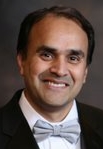 The prestigious, open access, Journal of Medical Internet Research recently published a study looking at the effectiveness of OpenMRS’ use during the 2014-2016 Ebola epidemic in West Africa. The article highlights the work of a team who developed new user-interface components for OpenMRS and rapidly deployed the system in an Ebola Treatment Centre (ETC) in Sierra Leone. The team, composed of members from OpenMRS, Save the Children International, Thoughtworks, The London School of Hygiene and Tropical Medicine, Partners In Health, University of Leeds, and Columbia University. The team came together in response to an urgent request for healthIT from colleagues at Save the Children International to develop an EHR suitable for deployment in a new Ebola treatment Centre being set up in Kerry Town outside the capital, Freetown.
The prestigious, open access, Journal of Medical Internet Research recently published a study looking at the effectiveness of OpenMRS’ use during the 2014-2016 Ebola epidemic in West Africa. The article highlights the work of a team who developed new user-interface components for OpenMRS and rapidly deployed the system in an Ebola Treatment Centre (ETC) in Sierra Leone. The team, composed of members from OpenMRS, Save the Children International, Thoughtworks, The London School of Hygiene and Tropical Medicine, Partners In Health, University of Leeds, and Columbia University. The team came together in response to an urgent request for healthIT from colleagues at Save the Children International to develop an EHR suitable for deployment in a new Ebola treatment Centre being set up in Kerry Town outside the capital, Freetown.
patient records
See the following -
Science Journal Examines Key Role of Open Source EHR in Ending Ebola Epidemic in Sierra Leone
- Login to post comments
The Anxiety of Waiting For Test Results
As medical records move online and state regulations loosen, many patients can bypass the doctor’s call and get the results of these tests faster, directly from labs via Web sites and apps.
- Login to post comments
The Radical Potential Of Open Source Programming In Healthcare
...electronic health records pose interesting problems related to sorting through vast amounts of patient data. This is where open source programming languages come in, and they have the ability to radically change the medical landscape. So why aren’t EHRs receiving the same care that patients expect from their doctor? There are a variety of answers, but primarily it comes down to how the software interprets certain types of data within each record. There are a variety of software languages designed to calculate and sort through large amounts of data that have been out for years, and one of the most prominent language is referred to as “R”.
- Login to post comments
Why do EHR Firms Own Patient Data When Other Software Vendors Don't?
 There's a healthy debate going on about healthcare data interoperability and I think the more we discuss it, the better off we'll be. It's absolutely crucial that all healthcare information systems be able to talk to each other in a way that is useful to both physicians/clinicians as well as patients. The only way to have truly interoperable systems is to have free (but safe and secure) data interchange and exchange requires access rights and an understanding of ownership rules. One part of the discussion that many vendors of electronic health records (EHRs), a large portion of the health IT ecosystem, don't want to have is about the ownership of patient data stored in "their" EHR systems.
There's a healthy debate going on about healthcare data interoperability and I think the more we discuss it, the better off we'll be. It's absolutely crucial that all healthcare information systems be able to talk to each other in a way that is useful to both physicians/clinicians as well as patients. The only way to have truly interoperable systems is to have free (but safe and secure) data interchange and exchange requires access rights and an understanding of ownership rules. One part of the discussion that many vendors of electronic health records (EHRs), a large portion of the health IT ecosystem, don't want to have is about the ownership of patient data stored in "their" EHR systems.
- Login to post comments
ZH OpenEMR Announces Lab Interface For OpenEMR
ZH Healthcare recently announced the certification and availability of Lab Interface services. This capability will be utilized in the ZH OpenEMR solution and is available for the community version of OpenEMR as a monthly subscription. The interoperability provides bi-directional capabilities to integrate lab orders and results directly into patient records. The interface will save providers time and money by simplifying workflows and reducing the number of unpaid orders. Clinical and operational quality will improve due to the reduction of manual entry errors and timeliness of lab results.
- Login to post comments
- previous page
- 1
- 2
- 3